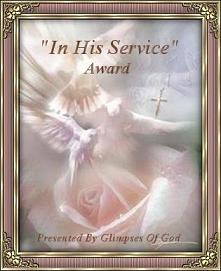
Image by kempsternyc via Flickr
(Please go back and read the previous post to get the background for this one. Also please note that this entry refers only to so-called "grey areas" in Christian behavior. At no time do I advocate disobedience to clear commands or principles.)
Do you feel guilty about desiring to do what you see other Christians doing…things which you can't do because you've been taught that God would disapprove? Have you found that the Scriptures really don't forbid certain activities, but your conscience still won't let you engage in them anyway? Are you wondering how you can get the freedom to indulge as others do?
Are you hoping that someone will tell you how?
I can think of two directions to take this problem, depending on where you are spiritually. So I'm going to start by giving you a little diagnostic quiz.
Please tell me honestly if the following describes your current experience of Christianity:
I'm not sure I'm saved, but I'm trying to act like I am,
I don't love God, but I'm supposed to behave as if I do,
I do love sin, but I'm supposed to behave as if I don't.
Now look at the description of "license" (sinful self-indulgence) below, and tell me if it fits the way you wish you could describe your life:
I don't love God, and I wish I could act like I don't
I do love sin, and I wish I could act like I do.
If that sums up your religion, you have far deeper things to be concerned about than whether or not you can enjoy a glass of wine. The soul described above is in mortal danger, no matter how many cigarettes it does not smoke. What you have is mere human religion, and what you need is a miraculous work of the Holy Spirit.
But what if that does not describe you? What if you truly are a believer; one whose love for God and hatred for sin are imperfect but growing? What do you do if legalism holds you in its grip?
How do you find freedom?
First, I suggest you make sure you're looking for true freedom. And true freedom is just as free not to do as it is to do. There are many who are free to drink alcohol, but there are also many who have lost the freedom not to. They are enslaved. If it is truly freedom that you seek, you will not limit your search to "the freedom to do such-and-such desired behavior." You will search for the freedom to do it and be thankful, or to abstain from it and be thankful.
He who regards one day as special, does so to the Lord. He who eats meat, eats to the Lord, for he gives thanks to God; and he who abstains, does so to the Lord and gives thanks to God. (Rom 14:6 NIV)
Being gratefully happy either way…either doing or not doing…doesn't that sound wonderful?
How do you achieve such freedom? By seeking an ever-increasing love for God and an ever-growing satisfaction in His delights, so that whether you do or don't do certain fleshly activities, your heart will still be content in Him.
Is this the sort of freedom your soul longs for? If so, I highly recommend the book that started it all for me. It's "Desiring God," by Pastor John Piper. You can read it online for free here, or purchase it at any Christian bookstore or online book retailer. You may also want to read anything truly God-centered that you can get your hands on.
Again, resist the urge to seek freedom to do a specific thing. As long as you feel your happiness depends on your "freedom to do that," then your heart still lacks the freedom to abstain from it. You are in chains to that desire, and your abstinence (if you manage to abstain) is joyless.
As long as your conscience forbids you to do something, do not indulge in it (Rom 14:23). But if your heart aches for what you cannot do, bring that ache to the Lord as one who believes (or at least wants to believe) that He is the source of all the deepest joys. Ask Him to increase your love for Him. Seek freedom in Christ by seeking to delight first and foremost in Him. Then trustingly obey Him so He can lead you in the right paths. As your delight in Him grows, you may find yourself liberated to do things that you could not have safely done before. Or, you may find yourself liberated to abstain without any serious pain.
When Christ becomes your life, your joy, your all, you will not be enslaved by anything you have, or by anything you lack. You will not be enslaved by anything you do, or anything you cannot do. You will be affected (sometimes profoundly) by your circumstances, but you will not be owned by them.
I have learned in whatever situation I am to be content. I know how to be brought low, and I know how to abound. In any and every circumstance, I have learned the secret of facing plenty and hunger, abundance and need. I can do all things through him who strengthens me. (Php 4:11-13)
If the Son sets you free, you will be free indeed! (John 8:36)
![Reblog this post [with Zemanta]](http://img.zemanta.com/reblog_a.png?x-id=c32d7c61-608d-4cb0-913a-b01f647ddb0f)
![Reblog this post [with Zemanta]](http://img.zemanta.com/reblog_a.png?x-id=09149445-71da-4804-9a56-f76764ca681e)



![Reblog this post [with Zemanta]](http://img.zemanta.com/reblog_a.png?x-id=e7bb72ae-1fd3-488d-a5b2-bc32336382ae)

![Reblog this post [with Zemanta]](http://img.zemanta.com/reblog_a.png?x-id=3069e606-7100-452d-9e5c-418c9c7af2a0)



![Reblog this post [with Zemanta]](http://img.zemanta.com/reblog_a.png?x-id=75470715-029f-4048-baef-831ccd44ed0b)












